Highlights
- So far, Rs. 308.06 lakh have been distributed in Davangere under PMFME scheme
- The scheme gives 50% financial assistance to farmers and local entrepreneurs
- Ninety five agri-business ventures have been started, which include 43 women-led ones
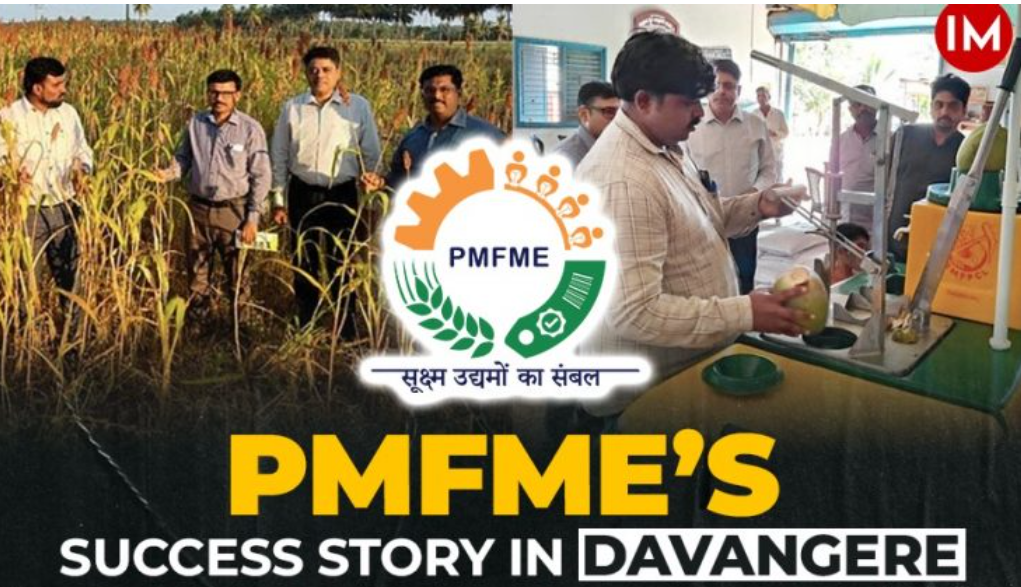
Known as the ‘Manchester of Karnataka’ for its quality textile cotton mills, Davangere is nowadays experiencing a significant transformation in micro-food processing also. From garlic peeling and packing to puffed rice, cold pressed oil, roti, millets, turmeric, baby corn and sweet corn, the district administration has slowly created a host of micro-entrepreneurs who in turn have provided job opportunities to most of the rural masses. Till now, around 95 such ventures have been started which includes Havish business Co, Charvi Authentic and Sri Arogya Food & Beverages among others.
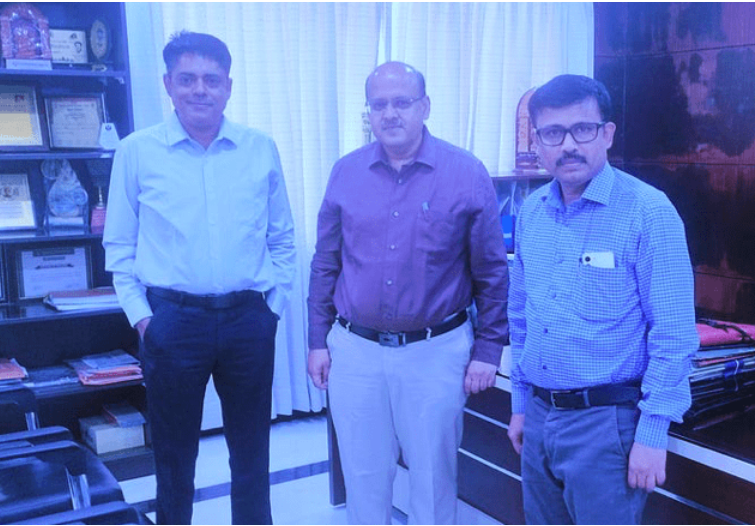
Out of these, 43 are women-led ventures which led to women empowerment in the new enterprises. This agri-revolution in the district is catalysed by the innovative approach of the administration under the Pradhan Mantri Formalisation of Micro Food Processing Enterprises (PMFME) scheme under Aatmanirbhar Bharat Abhiyan. The success story of this scheme in Davangare can be replicated in other districts of the state, as well as in other states of the country.
In a conversation with Indian Masterminds, CEO Zila Panchayat, Davangere, who played a crucial role in this success story, Mr. Suresh B Itnal, gave more details about the scheme’s implementation.
REASON BEHIND SUCCESS
Davangere is an agrarian district where agriculture is the mainstay of the people. It has four agro-climatic zones that are enriched with crop diversity. The district also has the added advantage of Bhadra and Tunga, which provide the assured irrigation facility for cultivation. Maize, paddy, ragi, coconut, banana, marigold, beetle vine, ginger, onion, chilli, ridge guard, tomato, etc., are the major cultivated crops of the district.
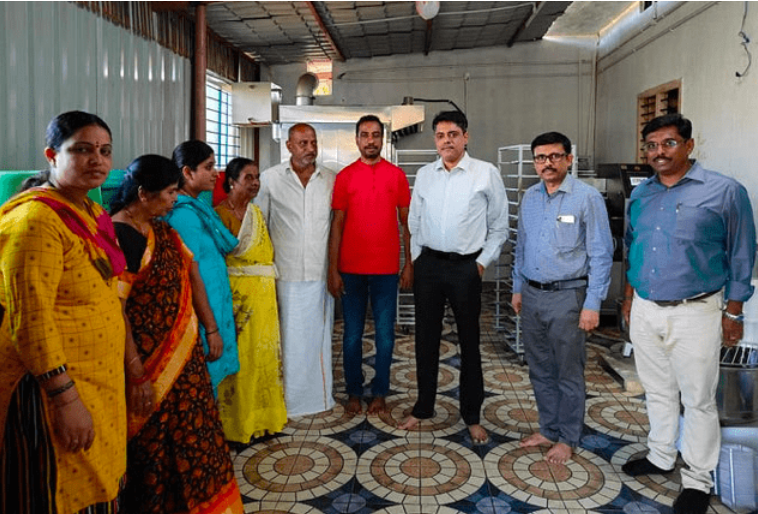
The district is located at the centre of Karnataka and has good road and railway connectivity. Mr. Suresh credits the success to wide publicity also. He said, “The Joint Director of Agriculture has provided wide publicity through local daily newspapers, distributing the scheme leaflets and folders, conducting farmer awareness trainings and seminars, radio talks, arranging farmer’s group’s calls, etc. We also have many financial institutions which provide financial assistance to the eligible new entrepreneurs.”
IMPLEMENTATION
The PMFME scheme gives 50% financial assistance to farmers and local entrepreneurs. So far, Rs. 308.06 lakh funds have been distributed in the district. Under the scheme, most of the entrepreneurs have adopted the best practices in production process, maintaining hygiene.
The scheme not only facilitate financial assistance to establish value-added processing industries but also facilitate connections between Davanagere’s micro-entrepreneurs and the markets through trade fairs and B to B market exposure melas.
The applicants of individual micro food processing units can avail credit-linked capital subsidy of 50% of the eligible project cost with a maximum ceiling of Rs.15 lakh per unit. The beneficiary contribution should be a minimum of 10% and the balance should be a loan from a bank.
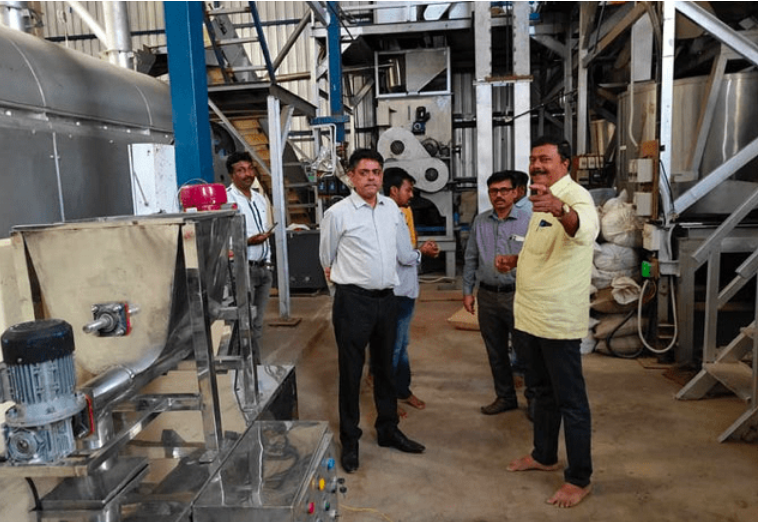
The applicants apply through online mode on the PMFME website. The application will be verified by the District Resource Person (DRP) in his login. Then the DRP will assist the eligible applicants to prepare Detailed Project Report (DPR) after perusing the documents provided by the applicants and finally submit the application to Joint Director of Agriculture (JDA) login.
The applicants will be called for preliminary meeting at the JDA level and advised on one-to-one basis to visit the already established beneficiaries under the PMFME scheme. The JDA, who is the member secretary, will then call a District Level Committee (DLC) meeting under the chairmanship of the Deputy Commissioner, to verify.
After the DLC finally approves the applications, these will be sent from the JDA login to the concerned applicants preferred bankers login. The applicants need to deposit 10% of the project cost into this bank account. The banker, after verifying applications and prerequisites of the bank, will then sanction 90% loan to the applicant.
CHALLENGES
Identifying the right and needy beneficiary was a major challenge in the implementation of this scheme. The agriculture department provided wide publicity through daily newspapers, leaflets and folders to create awareness on the PMFME scheme. Eventually, this awareness transformed into word-of-mouth publicity among the new entrepreneurs, which played a vital role in the large dissemination of information.
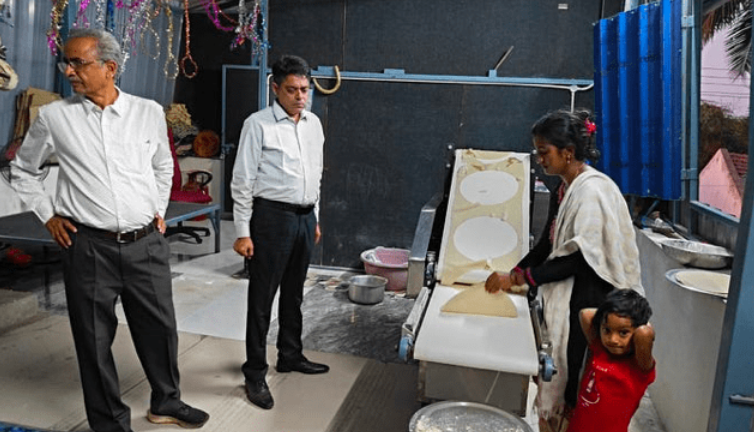
Sanctioning the loan facility to the eligible beneficiary was another major challenge. This was solved by the Deputy Commissioner, who is the chairman of the DLC. “Deputy Commissioner instructs the lead bank manager to give directions to the respective beneficiary bank to sanction the required loan amount as per the banking procedures to start the project. He also conducts regular meetings with the stake holders for periodic progress review to help in the successful scheme implementation,” Mr. Suresh said.
SUSTAINABILITY
The established beneficiaries are now producing quality products with attractive branding and packaging. They are not only doing retail sales at their own outlets, but also created loyal customers outside the district and even the state by exhibiting their products in various krishi melas, industrial expos, international trade fairs, etc.
Some of the beneficiaries have tie-ups with international consumer product outlets such as D-MART, Aditya Birla MORE shops and are regularly supplying their produce as per the international standards and requirements. Some of them are trying to tie up with international airways like Air-India for supply of millet biscuits and sweets. Already, the preliminary requirements and procedures for signing a MoU have been completed. Once this comes into effect, Davangare products will go international, creating yet another milestone for its micro-food processing industry.
Article Credit: indianmasterminds